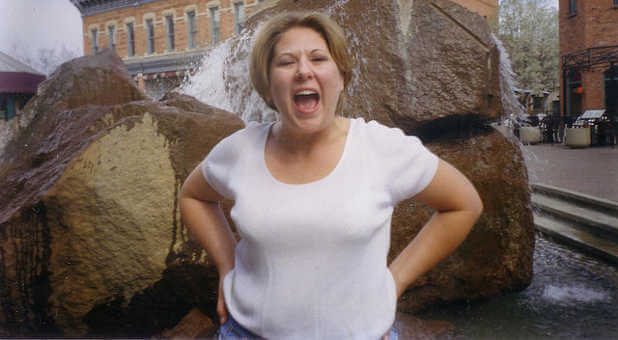As a writer, I find inspiration from so many sources. A story I’ve caught on the radio, a sermon I heard in church, a book I’ve read, a conversation with a friend, a lesson learned from one of my children—all these can contribute to the topic du jour about which I eventually write.
That process all good and well when you’re writing in a journal or even a letter to a friend, but when you’re trying to establish yourself as a professional, well, that requires quite a bit more care.
And sometimes you mess up.
It can come in the form of not citing your source clearly, or not masking identifying details of one of the people involved, or not running your piece by your subject prior to publishing, but it doesn’t only happen to writers!
We all mess up. Personally. Professionally. Spiritually.
So what do we do when that happens? Yes, I know what you might hear from your pastor, but I’d like to share some practical suggestions drawn from a recent personal experience.
A friend contacted me about an article I’d written. She was not happy with some of the ideas I’d shared and felt hurt and betrayed. She had a valid point, which she presented to me clearly and graciously. We worked through the issue, thankfully in a fairly short time. Looking back, I think the steps we took, outlined below, were what made this repenting/forgiving/healing process go so smoothly.
If You’re the Offended Party
- Don’t respond in the heat of the moment. Once you’ve received the sting of being hurt or offended, take a moment to cool down and think and pray. As humans, our knee-jerk reactions don’t exactly play out the best for resolving conflict!
- Get godly counsel. Find someone you trust to bounce off the chain of events. Be open to the fact that you may be being too sensitive. Consider whether there may be another side to the situation or a motive you may not even have thought of. If after prayer and discussion the offense still rings true, then …
- Approach the person in grace. In the example I experienced recently, my friend first contacted me through email, reminding me that she loved me, wasn’t angry with me but was hurt and wanted to know the earliest possible time I was available to talk. She presented a few options for me to look into that would help bring healing to the situation and left the ball in my court!
If You’re the Transgressor
- Be open to hearing from the person you’ve hurt or damaged. Yes, I will admit, this one is hard, but if you can get over yourself, the rest falls into place, I promise! When listening to how your actions have hurt someone else, often our immediate reaction is to defend ourselves and make excuses. Please don’t. While there may very well be a valid reason for whatever you did, this is not the time to present it!
- Be willing to do whatever it takes to make amends. If the person hasn’t already asked you to do something specific, offer some suggestions to get the ball rolling. Put yourself in their shoes and think about what might make it better for you, were you in their position. Then do it.
- Be compassionate. Realize that it most likely wasn’t easy for the person you’ve offended to come to you in the first place! In these days, when social media is the “go-to” option for venting a vast array of strong emotions, I hear of (and read) way too many instances when one or both parties in a dispute take to the internet and slash out harshly. (And that’s a whole ‘nother discussion.) But if you’re approached directly, extend the courtesy of working through the potential awkwardness and the process together.
Above all, it’s important not to let the issue fester! Be quick to approach the person who offended you, and if you’re the offender, be quick to repent and seek resolution.
If your brother or sister sins against you, rebuke them; and if they repent, forgive them. Even if they sin against you seven times in a day and seven times come back to you saying ‘I repent,’ you must forgive them, says Luke 17:3-4.
The world would teach us to develop a thick skin, and yes, the Word, too, cautions us not to be offended easily (1 Cor 13:5).
However, we’re all human. And as such, we will not only sin, but suffer the inevitable consequences of sin. Both love and grace go hand in hand toward bringing about healing and forgiveness, extending them to each other gives us opportunities to be more like Jesus every time! {eoa}
Pat Fenner has been homeschooling her five children for 20 years, learning and changing her methods quite a bit during that time. Preparing for a soon-to-be empty nest, she shares what she’s learned and encourages others in the journey over at patandcandy.com. Join them over a cup of coffee and sign up to get useful and creative parenting and homeschooling “members-only” helps.











































